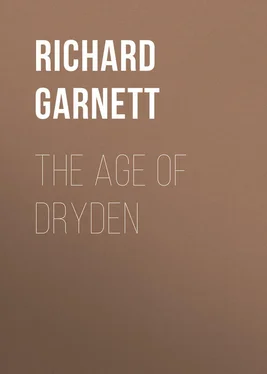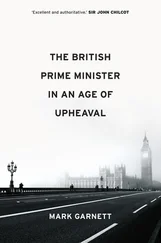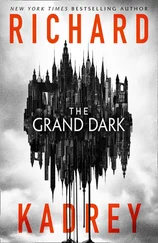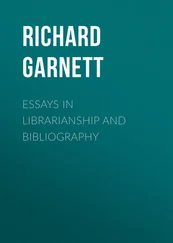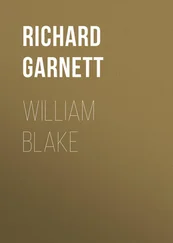Richard Garnett - The Age of Dryden
Здесь есть возможность читать онлайн «Richard Garnett - The Age of Dryden» — ознакомительный отрывок электронной книги совершенно бесплатно, а после прочтения отрывка купить полную версию. В некоторых случаях можно слушать аудио, скачать через торрент в формате fb2 и присутствует краткое содержание. Жанр: foreign_antique, foreign_prose, на английском языке. Описание произведения, (предисловие) а так же отзывы посетителей доступны на портале библиотеки ЛибКат.
- Название:The Age of Dryden
- Автор:
- Жанр:
- Год:неизвестен
- ISBN:нет данных
- Рейтинг книги:4 / 5. Голосов: 1
-
Избранное:Добавить в избранное
- Отзывы:
-
Ваша оценка:
- 80
- 1
- 2
- 3
- 4
- 5
The Age of Dryden: краткое содержание, описание и аннотация
Предлагаем к чтению аннотацию, описание, краткое содержание или предисловие (зависит от того, что написал сам автор книги «The Age of Dryden»). Если вы не нашли необходимую информацию о книге — напишите в комментариях, мы постараемся отыскать её.
The Age of Dryden — читать онлайн ознакомительный отрывок
Ниже представлен текст книги, разбитый по страницам. Система сохранения места последней прочитанной страницы, позволяет с удобством читать онлайн бесплатно книгу «The Age of Dryden», без необходимости каждый раз заново искать на чём Вы остановились. Поставьте закладку, и сможете в любой момент перейти на страницу, на которой закончили чтение.
Интервал:
Закладка:
The defect in Hudibras pointed out by Dr. Johnson, the want of logical sequence in the action, undoubtedly exists, but is almost inherent in the conception of such a performance. A more serious drawback, the disproportion between the hero’s deeds and his words, probably arises from the poem having been written at different periods of the author’s life. When he began to write his invention was lively and vigorous, but it naturally flagged after middle age, although his wit remained unimpaired. In the first and part of the second canto disquisition and adventure are so evenly blended that each supports the other; in the latter part of the poem the burden falls almost entirely upon the former. Hence the picturesque and cleverly varied incident of the bear-baiting, with the varied characters it brings upon the scene, will always be the favourite passage of the poem, unless an exception be made for the portraits of Hudibras and Ralpho. There is, however, considerable inconsistency in the character of Hudibras. He is represented as a fool, yet half the good things of the book are, from sheer necessity, put into his mouth. We are to suppose him a coward, yet he takes and deals cuffs and bangs in the spirit of a pugilist; and his attack upon the seven champions of bear-baiting, one of them an Amazon, is so far from cowardice, that it more resembles temerity. The more odious traits of his character hardly seem properly to belong to it; and in fact Butler probably commenced his poem without too curiously considering how he was to conduct it, or rather where it was to conduct him, and scribbled away in the spirit of his own maxim —
‘One for sense, and one for rhyme,
Is quite sufficient at one time’ —
trusting to the humour ever springing up under his pen to redeem his verse from the imputation of doggrel. This it certainly did; for although Hudibras as a whole is rambling, ill-compacted, and wordy, the terseness of many individual passages is as remarkable as their humour:
‘A tool
That knaves do work with, called a fool.’
‘Cerberus himself pronounce
A leash of languages at once.’
‘Hudibras wore but one spur,
As wisely knowing, could he stir
To active trot one side of ’s horse
The other would not hang.’
‘For as on land there is no beast,
But in some fish at sea’s exprest;
So in the wicked there’s no vice
Of which the saints have not a spice.’
‘Quoth she, There are no bargains driven,
Nor marriages clapped up in heaven,
And that’s the reason, as some guess,
There is no heaven in marriages.’
Butler’s Hudibras may perhaps be best defined as a metrical parody upon Don Quixote , with a spice of allusion to the Faerie Queene , in which the nobility and pathos of the originals are designedly obliterated, and the humour exaggerated into farce to suit the author’s polemic purpose. His design is to kill Presbyterianism and Independency by ridicule, and he is consequently compelled to shut his eyes to everything in them except their occasional tendency to baseness, and their perpetual liability to cant. This is the constant Nemesis of the satirist; but Butler is even more of a caricaturist than the situation called for. The endurance of his poem to our own times, however, is sufficient proof that, although a caricature, it was not a libel, and amid the enthusiastic reaction of the Restoration it may well have passed for a fair portrait. The machinery is closely modelled upon Don Quixote . Presbyterianism is incarnated in the doughty justice of the peace, Sir Hudibras; Independency and new light sectarianism in general in his squire, Ralpho; and the two sally forth in quest of adventure quite in the style of Don Quixote and Sancho, except that the Don’s great aim is to deliver damsels, and Hudibras’s to imprison them. Though the scene appears to be laid in the west of England, there is no reason to doubt the tradition that the prototype of Hudibras’s satire was Butler’s master, the Bedfordshire magistrate, Sir Samuel Luke, who is evidently alluded to where a rhyme to Mameluke is left blank to be supplied by the reader’s ingenuity. If, as is more than probable, this worthy justice was given to suppressing bear-baitings, Butler would need no more material for his burlesque; and the first part of the poem, at all events, may well have been written while he was in Sir Samuel’s employment. It seems, from internal evidence, to have been composed before Cromwell had ejected the Long Parliament, and its general atmosphere almost precludes the idea of its having been written after the execution of Charles I. The second part has many allusions to later events. The description of Hudibras, mind and body, is so vivid and precise as to present internal evidence of having been drawn from a living model, while Ralpho is in comparison vague. Soon after sallying forth the pair find themselves at odds with a crowd about to revel in the amusement of bear-baiting, which they proceed to interrupt; not, as has been remarked, out of compassion to the bear, but out of grudge to the public. This brings on a fight, most amusingly described, but at somewhat too great length; the ‘fatal facility’ of the octosyllabic couplet being nowhere more conspicuous than in Butler’s humorous doggrel. After various turns of fortune, the knight and squire find themselves in the stocks, where they sit until Hudibras’s lady-love, a frolicsome widow with a jointure, appears to the rescue:
‘No sooner did the Knight perceive her,
But straight he fell into a fever,
Inflam’d all over with disgrace,
To be seen by her in such a place;
Which made him hang his head, and scowl,
And wink, and goggle like an owl.
He felt his brains begin to swim,
When thus the Dame accosted him,
This place (quoth she) they say’s enchanted,
And with delinquent spirits haunted,
That here are tied in chains, and scourged,
Until their guilty crimes be purged:
Look, there are two of them appear
Like persons I have seen somewhere.
Some have mistaken blocks and posts
For spectres, apparitions, ghosts,
With saucer-eyes, and horns, and some
Have heard the Devil beat a drum:
But if our eyes are not false glasses,
That give a wrong account of faces,
That beard and I should be acquainted,
Before ’twas conjur’d and enchanted;
For tho’ it be disfigured somewhat,
As if ’t had lately been in combat,
It did belong t’ a worthy Knight,
Howe’er this goblin is come by it.
When Hudibras the lady heard,
Discoursing thus upon his beard,
And speak with such respect and honour,
Both of the beard, and the beard’s owner;
He thought it best to set as good
A face upon it as he cou’d,
And thus he spoke: Lady, your bright
And radiant eyes are in the right;
The beard’s th’ identic beard you knew,
The same numerically true:
Nor is it worn by fiend or elf,
But its proprietor himself.
Oh Heav’ns! quoth she, can that be true?
I do begin to fear ’tis you;
Not by your individual whiskers,
But by your dialect and discourse,
That never spoke to man or beast
In notions vulgarly exprest.
But what malignant star, alas!
Has brought you both to this sad pass?
Quoth he, The fortune of the war,
Which I am less afflicted for,
Than to be seen with beard and face
By you in such a homely case.
Quoth she, Those need not be asham’d
For being honourably maim’d;
If he that is in battle conquer’d,
Have any title to his own beard,
Tho’ yours be sorely lugg’d and torn,
It does your visage more adorn,
Than if ’twere prun’d, and starch’d and lander’d,
And cut square by the Russian standard.
A torn beard’s like a tatter’d ensign,
That’s bravest which there are most rents in,
That petticoat about your shoulders
Does not so well become a soldier’s,
And I’m afraid they are worse handled,
Although i’ th’ rear, your beard the van led;
And those uneasy bruises make
My heart for company to ache,
To see so worshipful a friend
I’ th’ pill’ry set at the wrong end.’
Интервал:
Закладка:
Похожие книги на «The Age of Dryden»
Представляем Вашему вниманию похожие книги на «The Age of Dryden» списком для выбора. Мы отобрали схожую по названию и смыслу литературу в надежде предоставить читателям больше вариантов отыскать новые, интересные, ещё непрочитанные произведения.
Обсуждение, отзывы о книге «The Age of Dryden» и просто собственные мнения читателей. Оставьте ваши комментарии, напишите, что Вы думаете о произведении, его смысле или главных героях. Укажите что конкретно понравилось, а что нет, и почему Вы так считаете.
